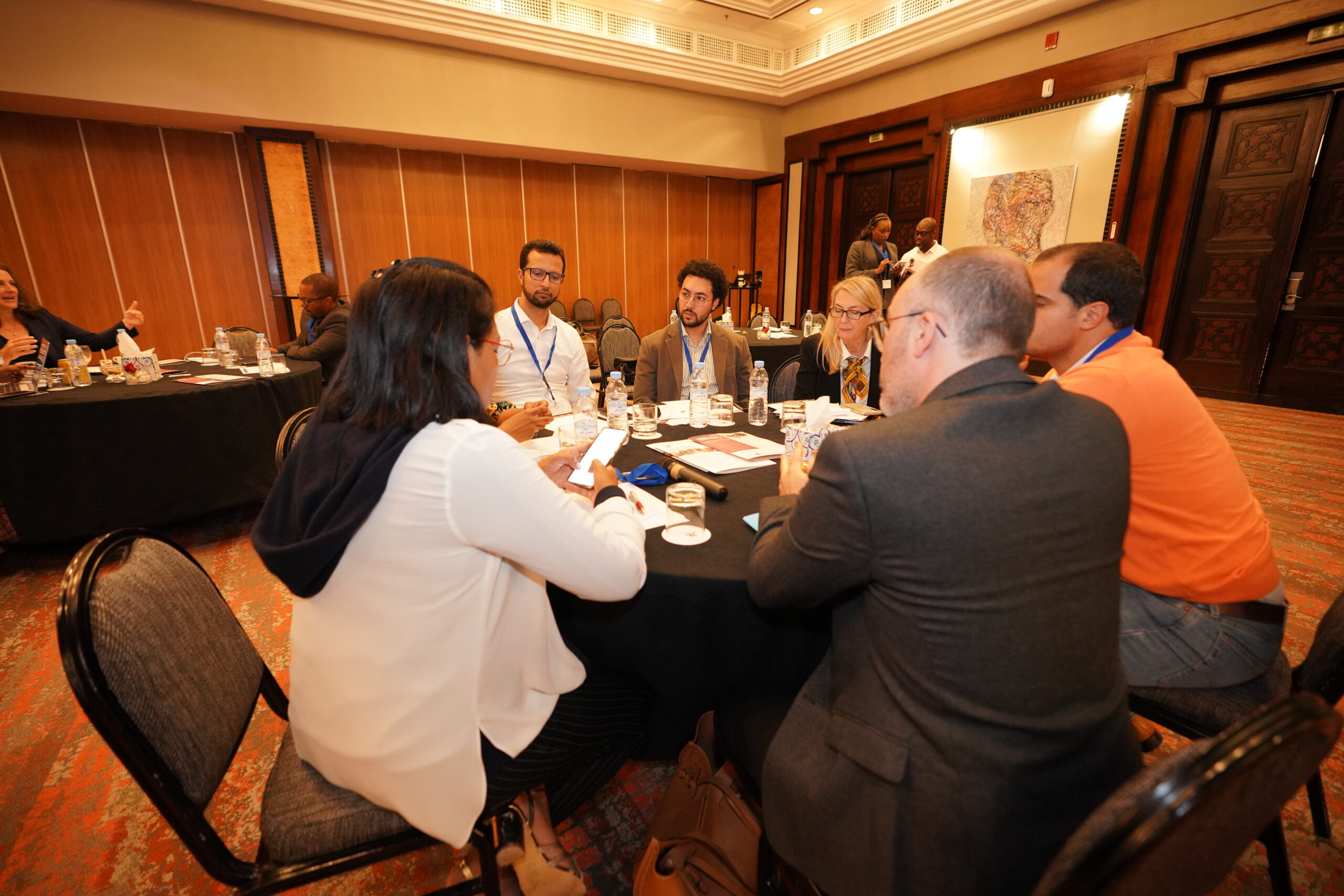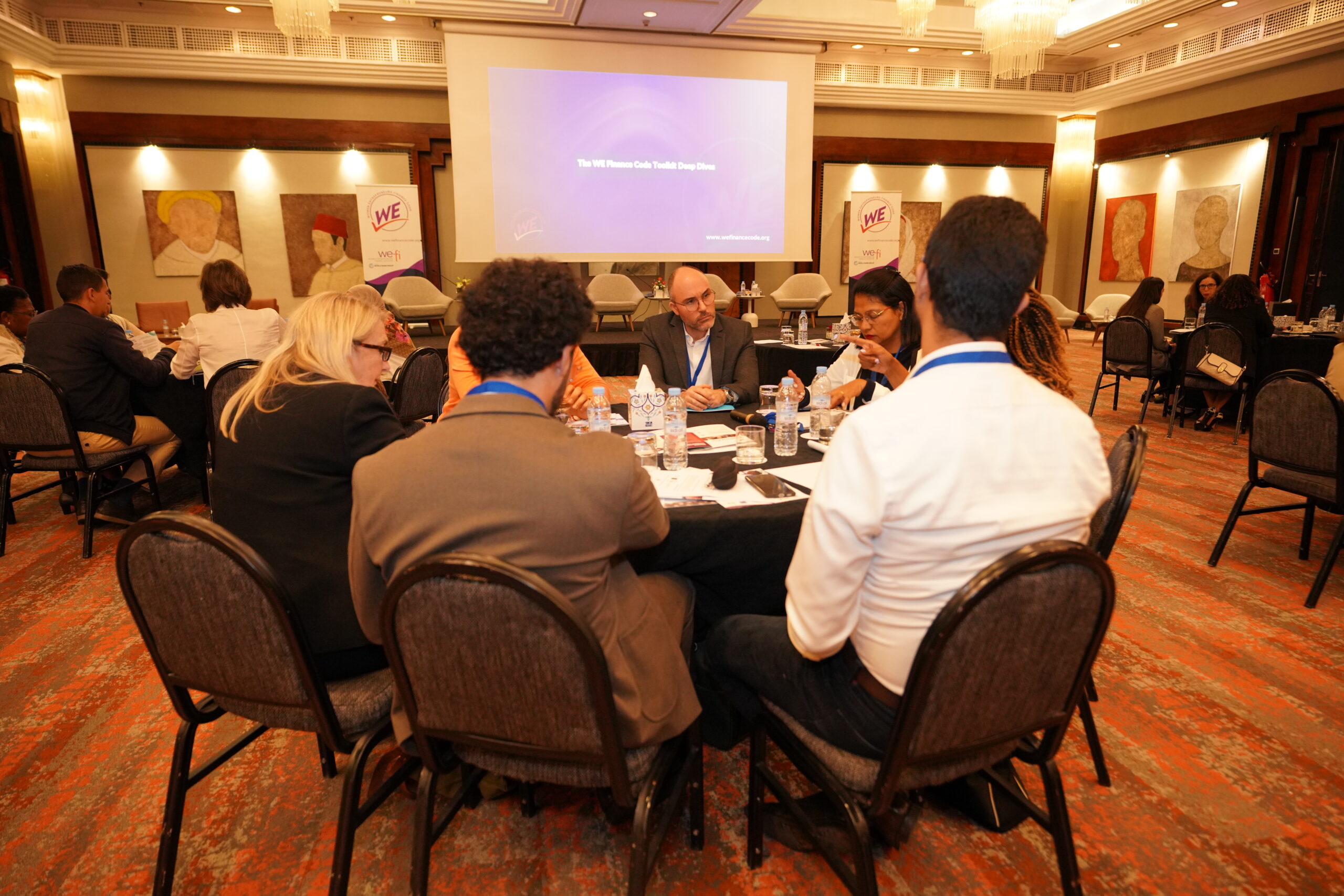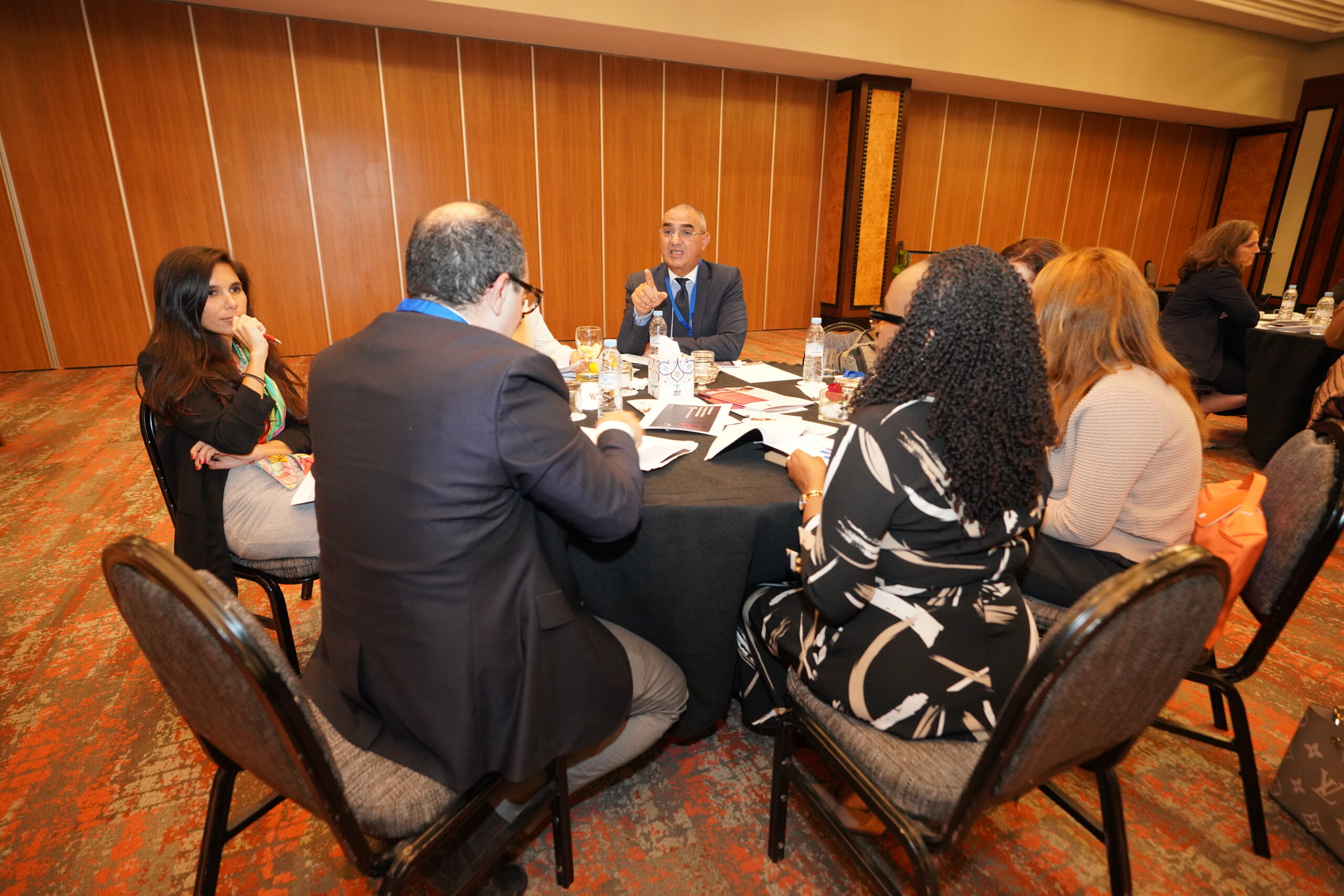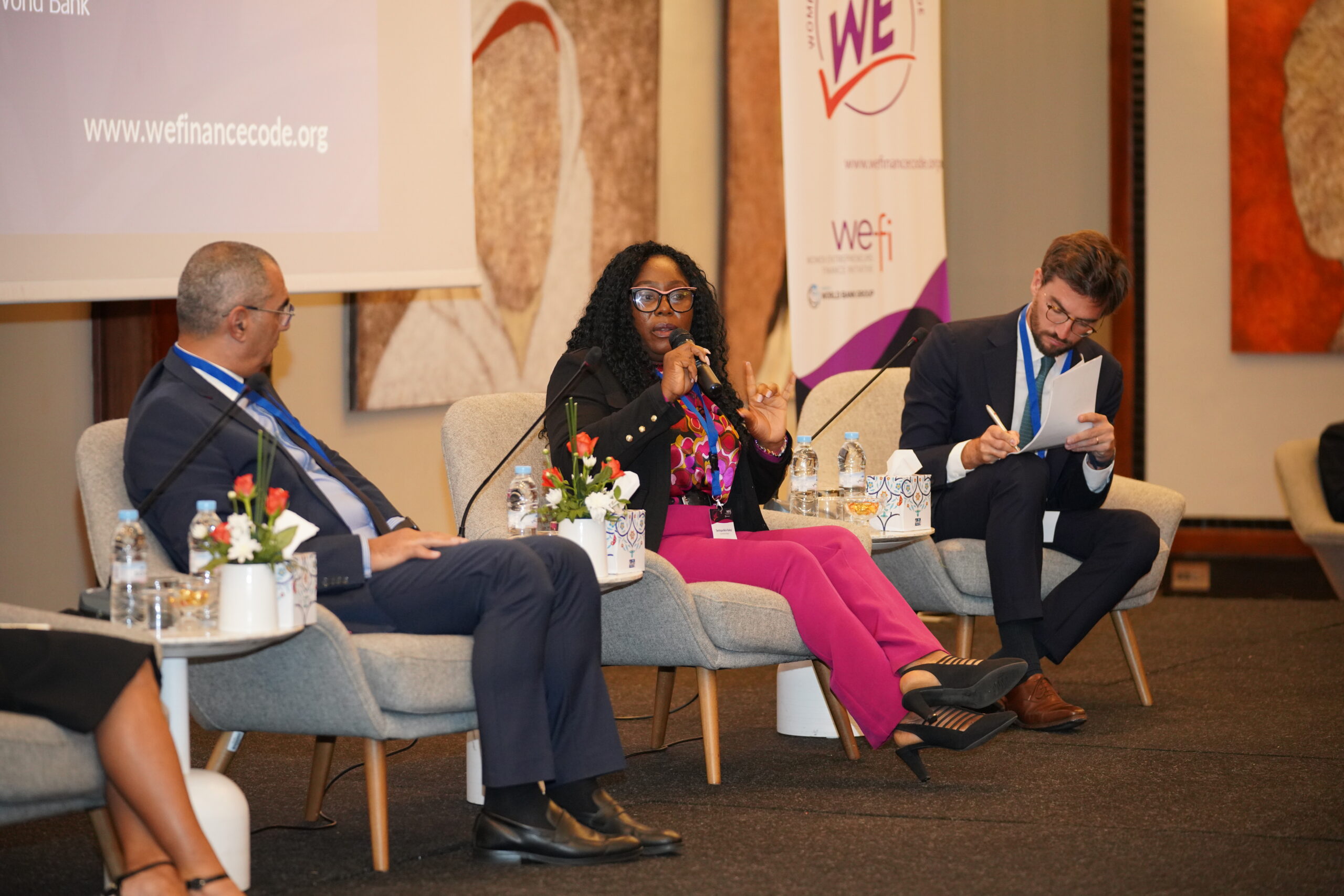In December 2024, regulators, financial service providers, and advocates of the WE Finance Code convened in Casablanca, Morocco for the inaugural WE Finance Code Regional Forum – Middle East and Africa. The forum aimed to provide an opportunity for participants to share knowledge, collaborate, and set the direction for expanding the WE Finance Code globally. Throughout the day, dynamic discussions, collaborative roundtables, and powerful insights underscored a clear message: progress depends on collective action, innovation, and intentional leadership.
The event began with a Women Leaders’ Brunch, a gathering that celebrated female champions and their role in advancing women’s financial inclusion. Nathalie Gabala from the International Finance Corporation (IFC) emphasized the importance of paving the way for others, stating, “As a woman, when leaving a position, never leave it empty.” She likened the lack of women in leadership to “flying a plane with two engines but only using one.” The brunch set the tone for the day, highlighting the importance of women claiming their space and ensuring that opportunities remain open for future generations.
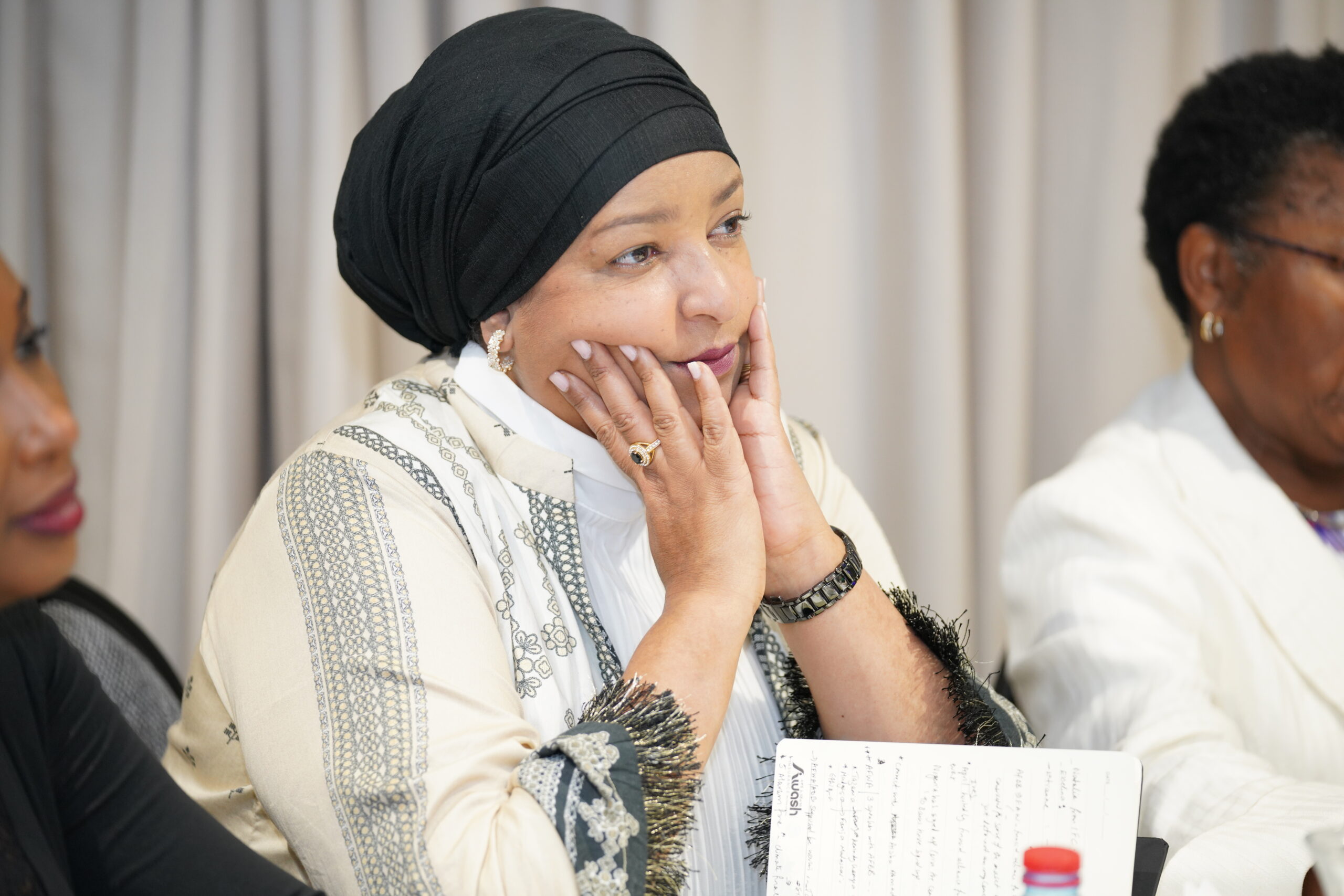
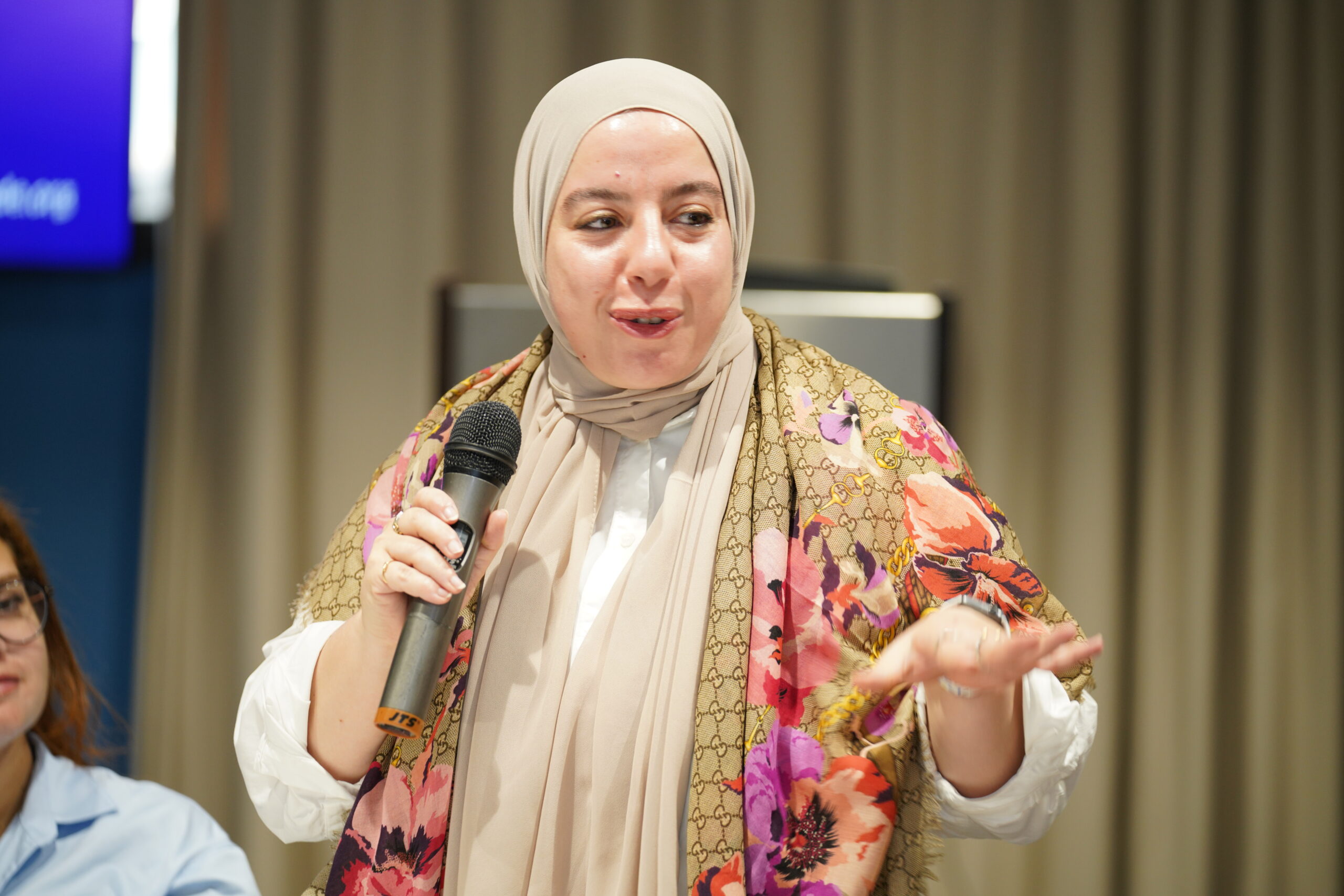
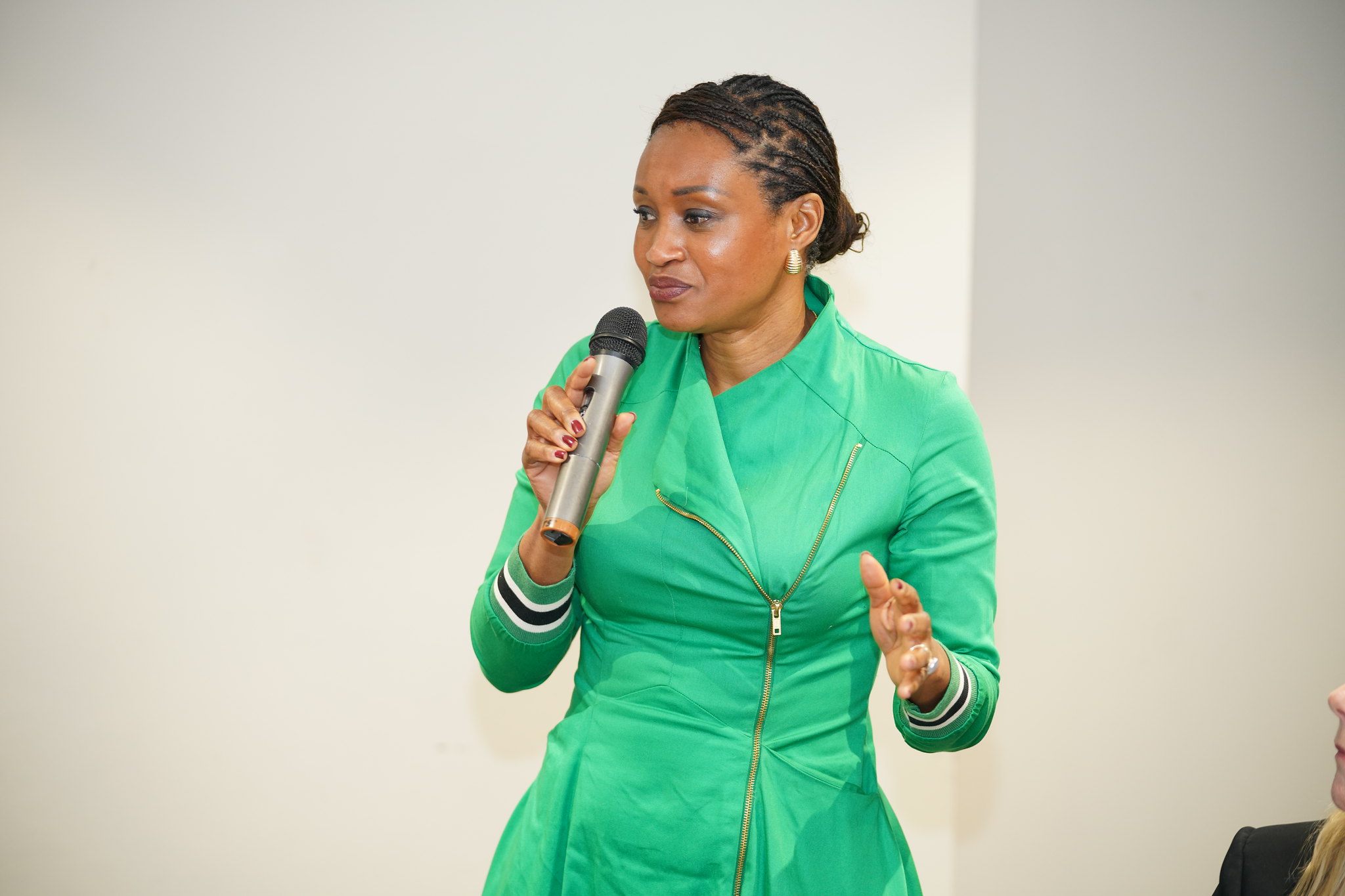
Collaboration and Coalitions: Building Momentum for Change
The first panel, “Building Momentum in National Coalitions,” brought together central bank regulators and financial sector leaders to share their experiences with implementing the WE Finance Code. Panelists explored how national coalitions, composed of financial institutions, regulators, and private-sector actors, are critical to advancing women’s financial inclusion.
Temitope Akin-Fadeyi from the Central Bank of Nigeria highlighted the importance of grassroots engagement: “Central banks need to cooperate with organizations that have real access to women. Banks are not present everywhere, but other agencies are well-placed to reach underserved populations.” Khaled Bassiouny from the Central Bank of Egypt shared how Egypt dedicated a financial inclusion event to directly engage with women, fostering understanding of financial tools and services. He explained, “We need to bring financial literacy to where women are, not expect them to come to us.”
Vivianne Laura dos Santos Saraiva from the Bank of Mozambique emphasized that “women make up 50% of the population, but their role in society is even greater.” The discussion revealed that progress requires intentional cooperation among regulators, financial institutions, and community organizations to address systemic barriers and scale solutions effectively.
Nathalie Gabala, Global Director of Gender and Economic Inclusion, IFC, likened the lack of women in leadership to “flying a plane with two engines but only using one.”
Data, Policy, and Practical Tools: Turning Knowledge into Action
Esselina Macome, CEO of FSD Mozambique noted that “data shows women are significant users of digital financial services, yet most financial products are still designed with men in mind.”
Throughout the forum, speakers underscored the importance of data-driven solutions, policy interventions, and practical tools to support women’s financial inclusion. Esselina Macome of FSD Mozambique noted that “data shows women are significant users of digital financial services, yet most financial products are still designed with men in mind.” She called for financial institutions to analyze this data and design products that meet women’s needs.
The interactive WE Finance Code Toolkit session provided participants with hands-on opportunities to explore tools for implementing the Code. Wendy Teleki of We-Fi posed a crucial question: “How do we bring men in as allies so the burden isn’t solely on women?” The discussion highlighted the need for inclusive advocacy, where men and women work together to drive change. Miriam Koreen from the OECD added, “If we can identify the problem, we can manage it.”
Naomi Kirungu from the Africa Management Institute reflected on the significance of such gatherings, saying, “Spaces like these—filled with women leaders discussing women’s roles in finance—did not exist when I grew up. Let’s make the most of them now.” Her words underscored the importance of seizing these opportunities to create lasting change.
Innovating for Inclusion: Financial Solutions Designed for Women
Financial innovation emerged as a key driver of women’s financial inclusion. Panelists discussed how financial institutions can develop products and services that reflect women’s realities. Esselina Macome emphasized that “traditional financial products are male-driven. We need to analyze data and create solutions tailored to women.”
Mamoun Tahri Joutei from the Bank of Africa encouraged institutions to rethink their strategies, remarking that “We need to recognize that women are not a niche market—they are essential to economic growth.” Despite progress, cultural and systemic barriers remain, and addressing these challenges requires innovative solutions and a commitment to change.
Hanta Rakotovao from BNI Madagascar highlighted the need to support women who may hesitate to engage with financial institutions. “Women who lack education often fear contacting the bank,” she explained. Building trust and designing accessible solutions are critical steps toward financial inclusion.
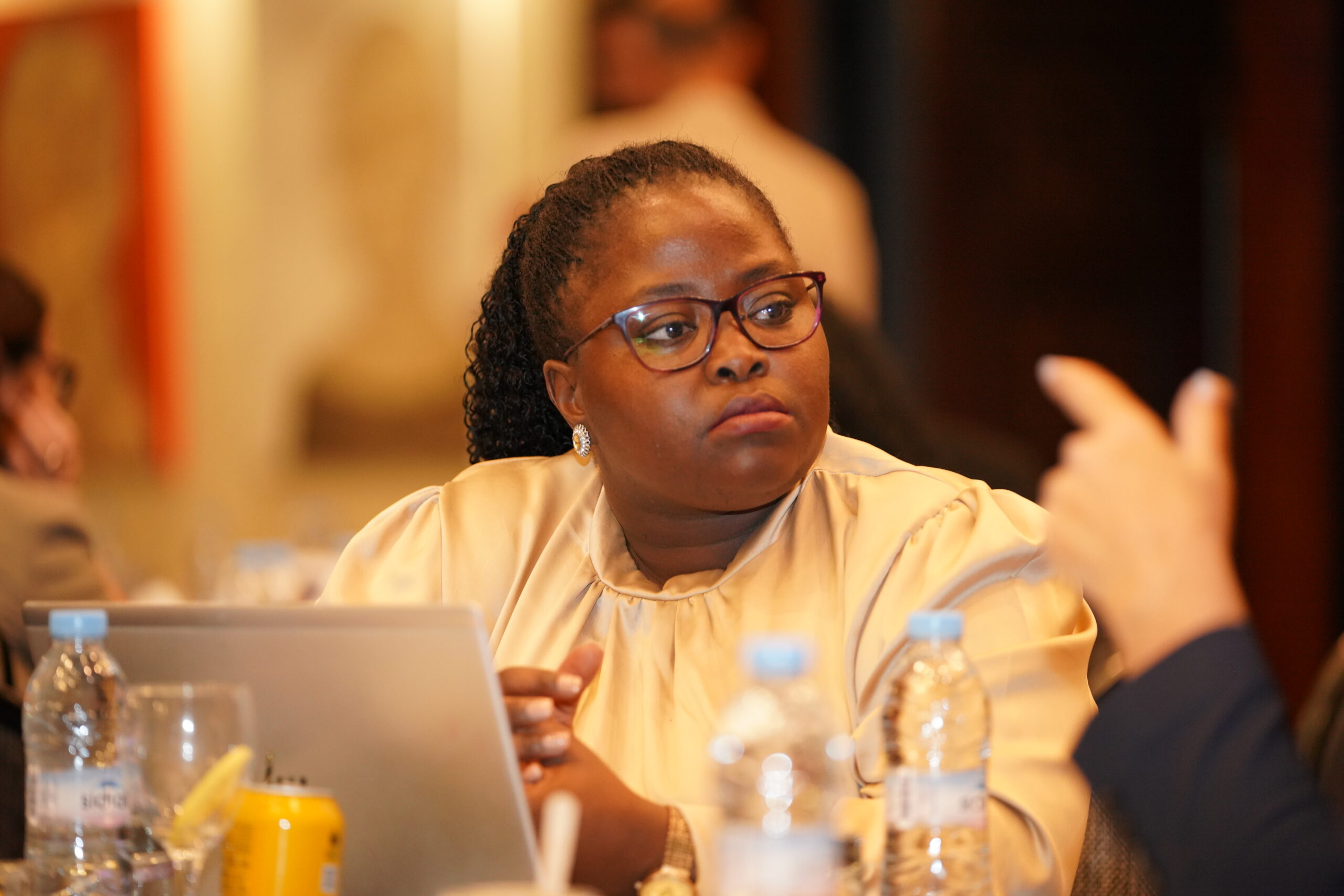
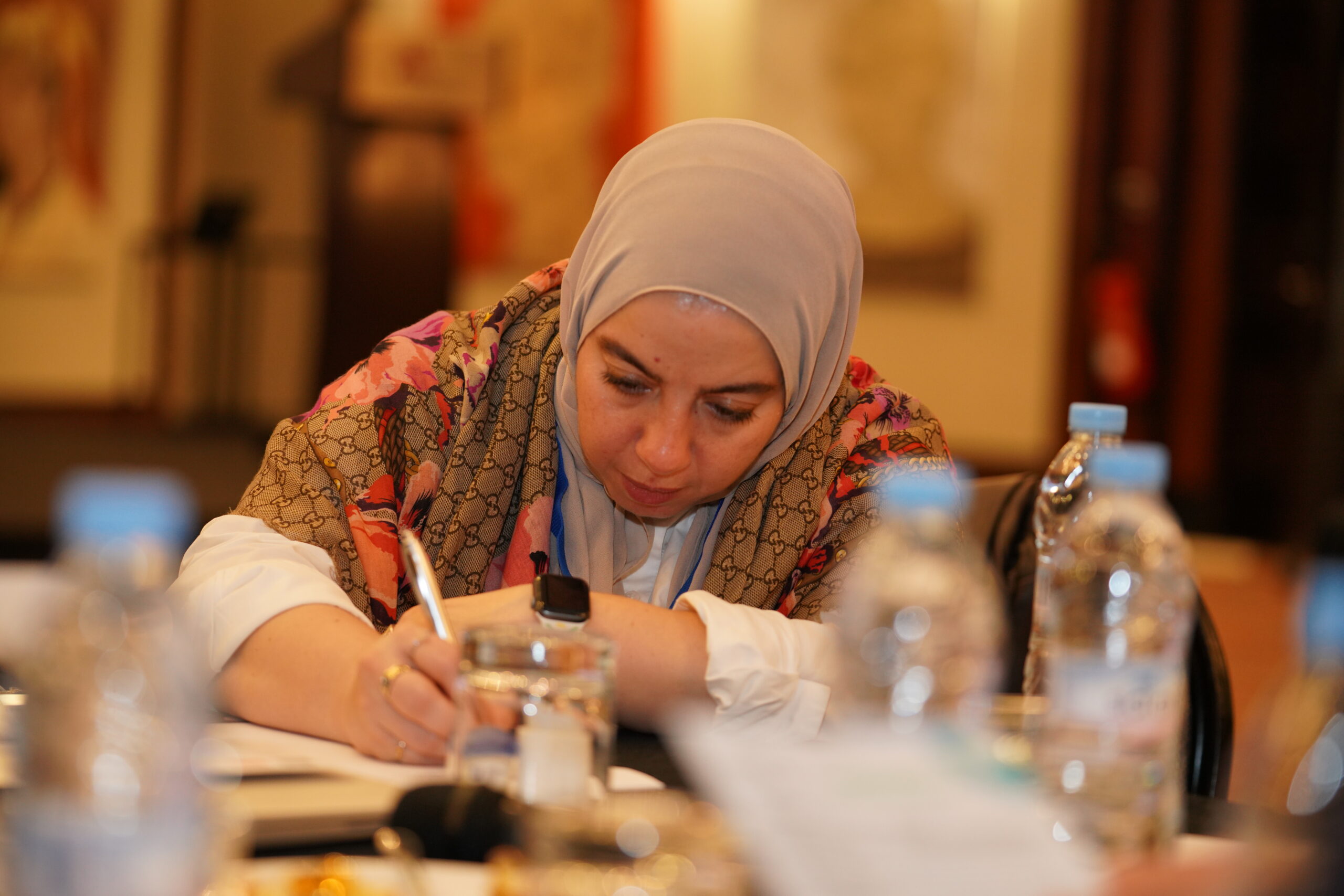
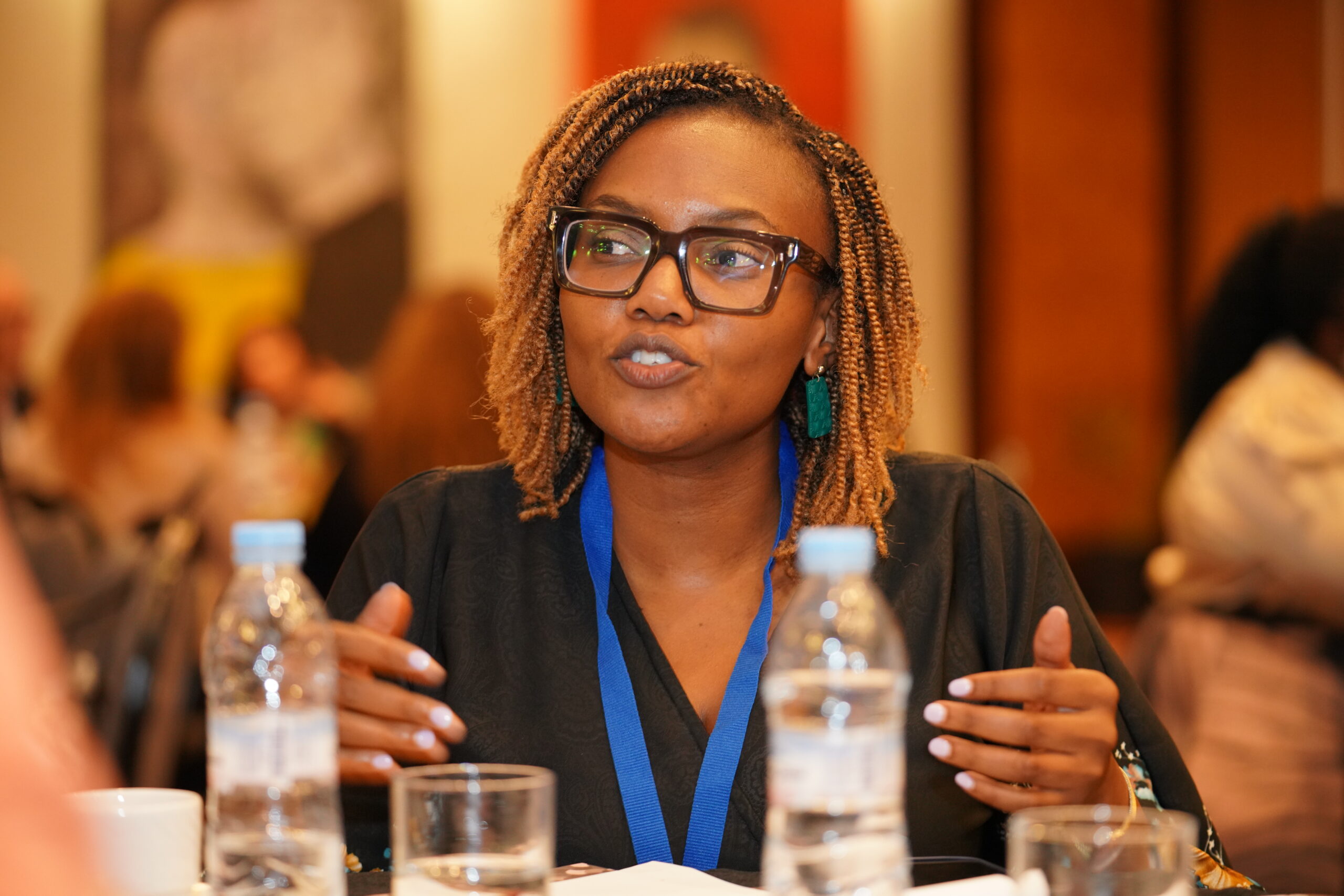
A Call to Action: Champions Driving Change
As the forum drew to a close, the final roundtable reinforced the role of champions in accelerating progress. Participants reflected on the importance of networking, advocacy, and personal commitment. Hikmet Abdella of FSD Ethiopia captured the spirit of the event perfectly: “Action starts with me. Everyone in the room is a champion.” This sentiment underscored the idea that lasting change depends on each person’s willingness to take initiative and advocate for women’s financial inclusion.
Inez Murray of the Financial Alliance for Women emphasized the need for systemic change: “We can’t just focus on iconic women leaders. We need to build a pipeline of women at every level.” Ruth Goodwin, who was the founding Managing Director of the Better Than Cash Alliance at the UN, echoed this, saying, “To be efficient, it’s all about partnerships. The key question is: how do we build those partnerships?”
Inez Murray, CEO of the Financial Alliance for Women, emphasized the need for systemic change: “We can’t just focus on iconic women leaders. We need to build a pipeline of women at every level.”
Looking Ahead: Creating an Inclusive Financial Future
The forum left attendees inspired and equipped with the tools and strategies to continue their work. By fostering partnerships, promoting innovation, and advocating for inclusive policies, women can move beyond having a seat at the table—they can lead the conversation. The path forward is clear: through collective action, innovation, and unwavering commitment, we can create a more inclusive financial future for women.
